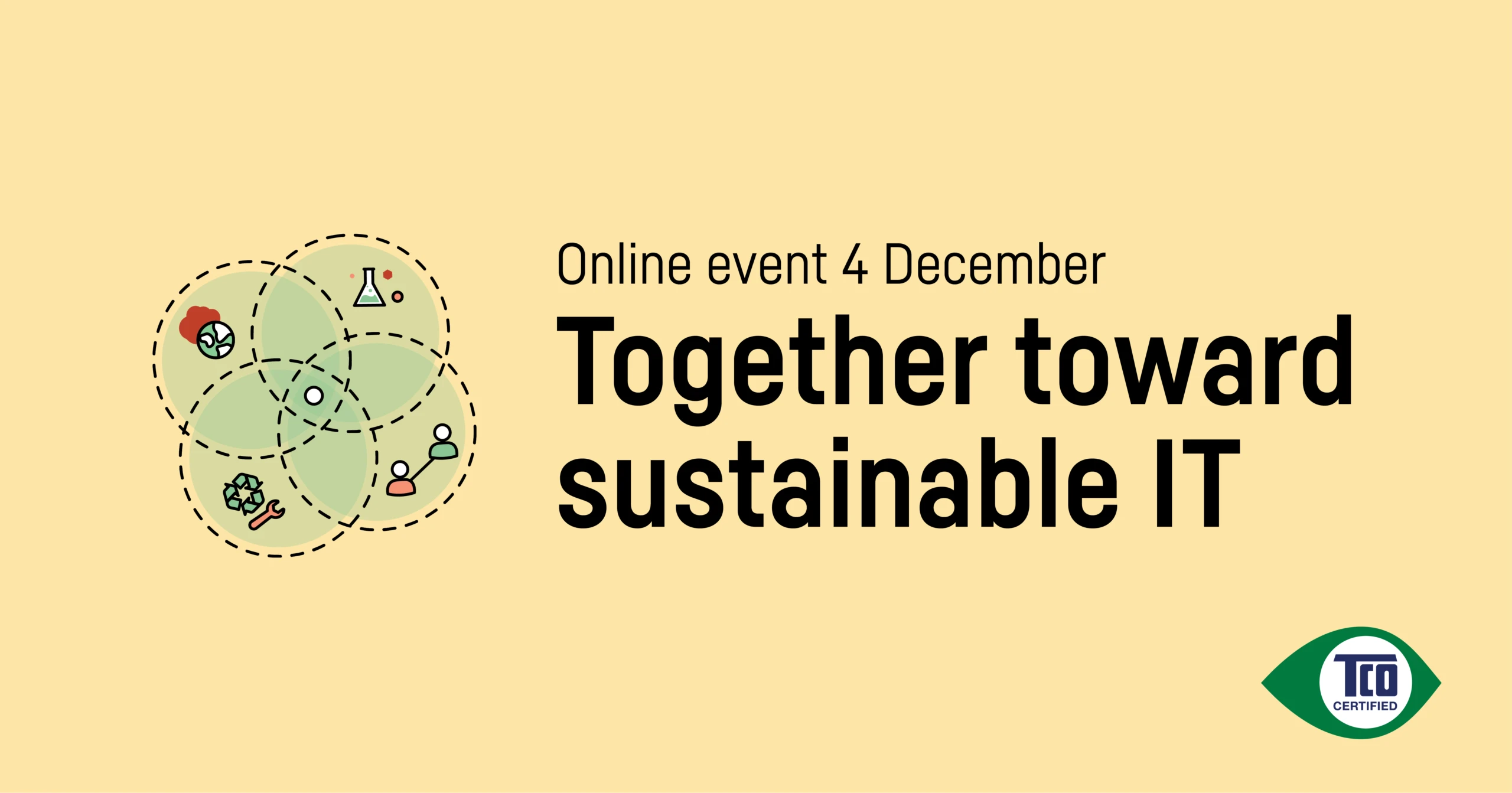Summary of the report ”The State of Social Responsibility in Manufacturing in the IT-industry”
Increasingly, IT-using organizations are looking for computer products that are environmentally preferable and made under socially responsible conditions. Yet, shorter product cycles and growing demand for new technologies puts increasing pressure on industry and its complex supply chain to deliver new devices faster and at a lower cost. The result is often inadequate working conditions in electronics manufacturing, including long working hours, low wages and a lack of health and safety measures. The problem is widespread and well publicized through media and NGO monitoring.
In an effort to provide a solution for buyers looking for sustainably made products and a structure for industry to pursue more responsible manufacturing processes, TCO Development introduced initial criteria for socially responsible manufacturing in the TCO Certified sustainability certification for IT products in 2009. This was followed by expanded criteria and verification routines in 2012. The purpose was to set in place a structure and create a more transparent dialog with industry that TCO Development believes is necessary for real improvement and greater brand responsibility to take place.
TCO Development has compiled findings as seen among the first 17 brands that certified products according to the new criteria during the first year of validity –September, 2012-September, 2013. This report includes findings and data from this first compliance period.
Criteria and value-based goals
The expanded criteria introduced in 2012 center upon brand adherence to the eight ILO Core Conventions, the UN Convention on the Rights of the Child and labor and social protection laws in the country of manufacture. TCO Development has set three value-based goals with the new criteria;
- Responsibility – increased manufacturer / brand responsibility for ensuring safe and ethical working conditions in manufacturing facilities
- Structure – establish an equal-access, objective platform for gradual improvements, including defined controls and benchmarks
- Transparency – improved and open dialog about social issues between brands, manufacturers and other stakeholders
Measuring progress against these goals allows us to monitor progress toward achieving greater sustainable development in the manufacturing phase of the IT product life cycle.
Verification tools
Verification of compliance is key to determining progress in the three goals of responsibility, structure and transparency. TCO Development has implemented three verification tools for assessing compliance with the criteria:
- Code of Conduct – either through EICC process, SA8000 or “Own Work” option
- Third Party Factory Audits – from Tier 1 (final assembly) facility
- Corrective Action Plan (CAP) – for addressing identified non-conformities
Verification is carried out by accredited third party expert organizations. Factories and products are also subject to follow up spot checks and audits.
Findings – some progress, but hotspots remain
The findings of the first year show that some progress has been made among several brands in the three value-based goals of responsibility, structure and transparency.
TCO Development has observed some brands taking a greater responsibility for working conditions in manufacturing facilities by engaging in the TCO Certified process and raising social responsibility issues to the senior management level. Several brands have also increased training in socially responsible manufacturing for their suppliers.
TCO Certified has provided brands with an equal-access platform and structure for improving their performance and measuring progress over time. For some brands this was their first time working with social responsibility in a structured way.
Through open and ongoing dialog during the TCO Certified process, we believe that transparency between brands, manufacturers and third parties has improved in several cases.
While there is evidence of progress, the analysis reveals priority and major violations persist, including poor working conditions, overtime hours and compensation, insufficient health and safety routines, labor law violations and restrictions on the right of workers to organize.
Moving forward
Moving forward we believe there is a need for structured implementation and follow-up of corrective actions if we are to see more widespread and continued improvement. The data in this report point to a general lack of structure and routines where brands have neglected to follow up and implement their code of conduct.
The TCO Certified program includes follow up spot checks of products and manufacturing facilities to monitor continued compliance. This process will be used as a follow up method as TCO Development continues to monitor progress. Our ongoing collaboration with stakeholders from industry, research and user communities will help us continue our work to influence IT in a more sustainable direction in all phases of the product life cycle.




